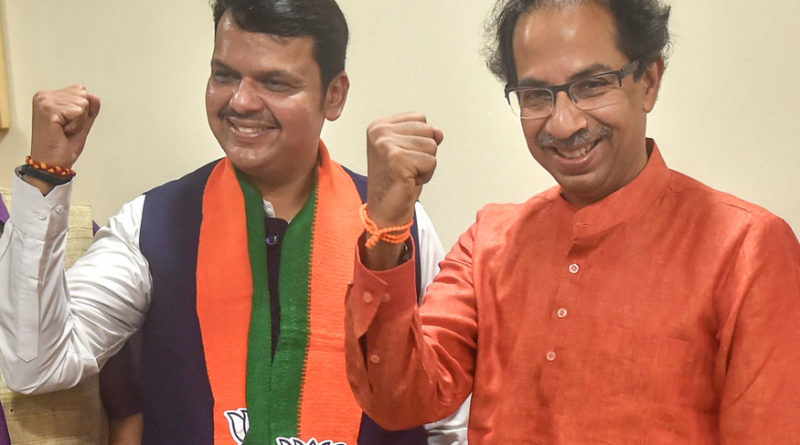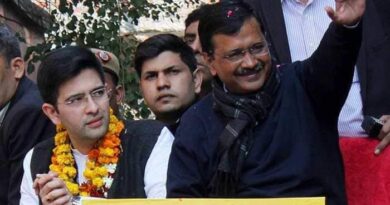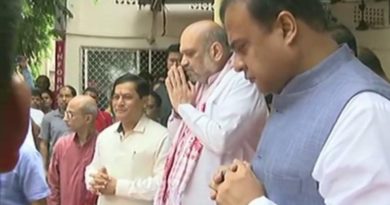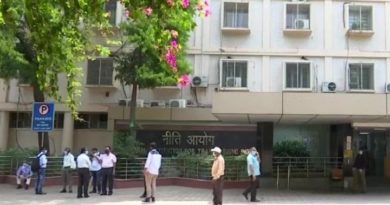S C Directs Maharashtra CM Fadnavis To Face Trial For Non-declaration Of 2 Criminal Cases In 2014 Election Affidavit
AHEAD of the Assembly elections on October 21, Maharashtra Chief Minister Devendra Fadnavis on Tuesday, October 01, suffered a jolt following the Supreme Court of India setting aside the Bombay High Court order giving him a clean chit and directing him to face trial for allegedly failing to furnish details of two pending criminal cases in 2014 poll affidavit. The ruling came in a petition by filed by lawyer Satish Ukey who had sought his disqualification for allegedly not disclosing two pending criminal cases in his 2014 election affidavit. It was contended that the chief minister did not disclose the information as required of him under the election law and the non-disclosure of these two pending criminal cases was in violation of Section 125A of the RP Act and constituted an offence in itself.A Bench headed by Chief Justice of India Ranjan Gogoi passed the orders. On July 23, the top court, while reserving the verdict, had said that the alleged “omission” by Fadnavis for not disclosing information about two criminal cases in his election affidavit in the 2014 assembly polls may be decided in the trial. The Bombay High Court order had given a clean chit to Fadnavis and had held that he did not deserve to be tried for the alleged offences under the Representation of Peoples (RP) Act.”The respondent (Fadnavis) has the knowledge of the two pending cases,” Justices Deepak Gupta and Aniruddha Bose also comprising the Bench, said. The SC said that it was concerned with a limited issue whether prima facie Section 125A of the RP Act is attracted or not. The provision deals with the penalty for “filing false affidavit” and says that if a candidate or his proposer fails to furnish or gives false or conceals any information in his nomination paper on issues like pending criminal cases then the person may be awarded six months jail term or fine or both. key had contended that the chief minister filed a false affidavit by not disclosing two criminal matters and yet the trial court and the high court held that there no prima facie case was made out for prosecution of the chief minister. He had said that a candidate was under mandatory legal obligation to disclose details of all cases in which either charges have been framed or the trial court had taken cognizance, in the nomination papers. The petitioner had alleged that Fadnavis, in his election affidavit filed in 2014, had failed to disclose the pendency of two criminal cases against him. Fadnavis had contended that the two cases of alleged cheating and forgery were filed against him in 1996 and 1998 but charges were not framed. S C has also ordered that the case would be heard by a magistrate’s court. If the charge is proved, the punishment for concealing information or giving false information on one’s election papers is six months jail or fine or both. Incidentally, India Today recalls that Fadnavis is all set to become the first Maharashtra chief minister to complete a full five-year term in 47 years. He will be only the second chief minister of Maharashtra to achieve this feat. Maharashtra came into being in 1960 when the State of Bombay was split to form Maharashtra and Gujarat as full -fledged states. Twenty-six chief ministers have been sworn in Maharashtra in its nearly 60 years of existence with Sharad Pawar taking oath four times, Vasantrao Naik and Vasantdada Patil three times each, and Shankarrao Chavan and Vilasrao Deshmukh twice each. Before Devendra Fadnavis, Vasantrao Naik was the only Maharashtra chief minister to have completed his term in the third Maharashtra Legislative Assembly during 1967-72. Naik remains the longest serving chief minister of Maharashtra. Nagpur born Fadnavis became Chief Minister of India’s western state at the age of 44 becoming the second youngest Chief Minister of his native state after Sharad Pawar( edited by Pranab Kumar Chakravarty with inputs from varied sources)




